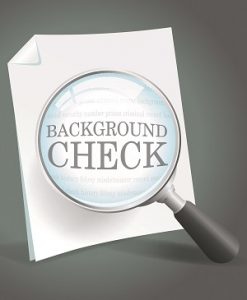A woman whose ex-employer conducted a pre-employment background check that didn’t technically comply with the federal Fair Credit Reporting Act (FCRA) could not bring a lawsuit against the company over the violation, a federal judge in Massachusetts recently decided.
The employee, Nicole Kenn, applied for a job as a technician with ambulance services company Eascare in 2018.
As part of the application process, she signed a disclosure form and authorization allowing Eascare to perform a background check that included a look into her credit history. The disclosure form also included a waiver that released Eascare from any liability that might stem from the background check.
Kenn resigned a year later and accused the employer of retaliating against her for complaining of sexual harassment by co-workers. She also filed a class action against Eascare under the FCRA, accusing the company of running a pre-employment background check on her and other workers without proper authorization.
Specifically, she pointed to the fact that Eascare included the liability waiver and other extraneous language on the disclosure form, which violated the FCRA’s requirement that the form be a “stand-alone” one. A noncompliant disclosure and authorization form amounted to an unauthorized background check, she argued.
While the judge did not disagree that the employer violated the statute, she found that [the employee] couldn’t show the violation caused her an “injury-in-fact.”
But a U.S. District Court judge dismissed the claim.
While the judge did not disagree that the employer violated the statute, she found that Kenn couldn’t show the violation caused her an “injury-in-fact.” Accordingly, said the judge, Kenn lacked legal standing to bring her claim.
Although this employer technically violated the FCRA, it won’t end up having to pay the $1,000 in damages per violation plus punitive damages and attorney fees that violations can bring. But this is just one case in one court. Other courts have allowed suits to move forward under similar circumstances.

